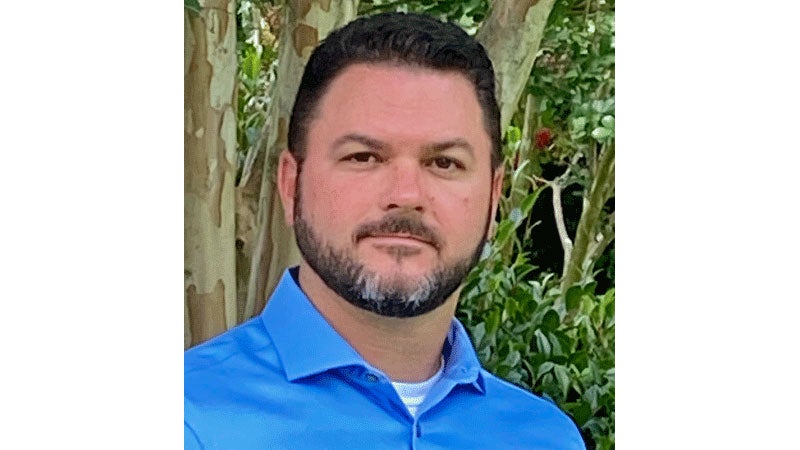IW School Board chairman opposes plan to share county CFO
Published 10:00 am Saturday, March 23, 2024

- Jason P. Maresh
|
Getting your Trinity Audio player ready...
|
At least one Isle of Wight County supervisor and some School Board members are proposing to merge their currently separate finance departments following the departure of Isle of Wight County Schools’ third chief financial officer in two years.
Others, including School Board Chairman Jason Maresh and IWCS Superintendent Theo Cramer, say sharing the county’s CFO would diminish the School Board’s independence and interfere with ongoing efforts to recover from the $703,151 prior-year deficit auditors identified in January.
Larisa Harris, whom Cramer had hired in early 2023, resigned as CFO on March 1 after just over a year in the role. Her immediate predecessor, Rachel Trollinger, quit in October 2022 after four months on the job. Trollinger’s predecessor, Steve Kepnes, had previously departed the role in May 2022. Auditors blamed the high turnover during the 2022-23 school year for financial misstatements that left the division still $345,717 in the red as of Jan. 2.
Cramer, in February, said he planned to resolve the deficit by pulling an equivalent amount from the current budget to cover last year’s shortfall and freezing spending through the remainder of the school year. Earlier this month, IWCS announced it had recruited retired Chesapeake Public Schools Superintendent Jim Roberts as its new interim CFO and had rehired its 2003-10 budget director, Steve Jenkins, who recently retired as CFO of Norfolk Public Schools. Each will be paid $75 per hour, according to their contracts.
School Board Vice Chairman Mark Wooster, at the board’s March 14 meeting, voted with members John Collick and Brandi Perkins to add the CFO merger proposal to the evening’s agenda over objections from Maresh and board member Michael Cunningham.
“Dr. Roberts and Mr. Jenkins are both part-time and we will still be needing to seek a full-time CFO, so based on that we need to entertain all possible options available to us,” Wooster said.
Maresh said the idea for the merger originated with an email from a county supervisor, whom he did not name but is identified as District 2 Supervisor William McCarty in a March 2 email thread The Smithfield Times obtained.
“Why should the County CFO and subsequent finance staff keep picking up the mistakes of a department that, even with help, struggles to get it together?” McCarty asked Maresh. “We are elected representatives, yes, but we are also selected as leaders to address and fix problems and issues and provide a vision for the future. This type of solution prevents us from repeating the same thing and expecting a different result.”
While Wooster contends the merger wouldn’t relinquish any of the School Board’s statutory or constitutional authority, Maresh and Cunningham say it would.
“I am not interested in relinquishing any sort of responsibility to budgetary oversight whether it be specified or implied,” Maresh said.
“I respect the Board of Supervisors, but we’re separate for a reason,” Cunningham said. “Both boards have responsibilities and when you start mixing those up things start getting blurry.”
McCarty, in a March 18 interview with The Smithfield Times, said Maresh had been the one to initially suggest examining the legality of the schools and county temporarily sharing a CFO.
“Nobody’s wanting a power grab here,” McCarty asserted.
McCarty said the proposal would be limited to accounting and would not entail the Board of Supervisors taking oversight of the IWCS budget from the School Board. For the idea to move forward, the School Board would need to initiate the process.
“Unless they ask us, we can’t be a part of it,” McCarty said. “It has to be by invite only.”
Maresh said he didn’t recall specifically discussing a shared CFO but confirmed he, Collick, McCarty and former supervisor Dick Grice had met last year to discuss a variety of potentially shared services such as vehicle maintenance and information technology.
“The premise of those conversations was to explore cost savings options for the county as a whole,” Maresh said.
Wooster, Collick and Perkins each said they envisioned the finance department merger as being temporary.
“I need to have confidence that the next two audits are going to be successful,” Collick said. “Right now, I don’t have that level of confidence.”
Maresh urged the board to postpone the discussion until after the School Board adopts a budget for the coming 2024-25 school year. A public hearing on the division’s 2024-25 budget book, which is now slated to be released March 19 on the division’s website, www.iwcs.k12.va.us, is set for a March 21 public hearing and possible vote. Cramer, in February, presented the board with 68 pages of departmental budget requests that would amount to a roughly $21 million increase over the current year if everything, including several large one-time facility upgrades, gets funded.
“I do believe that we need oversight, especially if we’re asking for more money,” Perkins said. “I don’t think the Board of Supervisors is as eager to give us any extra requests in the budget at this point.”
McCarty’s email to Maresh confirms Perkins’ suspicions.
“Bottom Line: I cannot and will not support any increase of funds for the schools in any capacity unless our citizens are assured that the School’s finance department can be trusted with the multiplied millions of taxpayer funds,” McCarty wrote to Maresh. “Sure, I understand that I am only one vote, yet I am confident that my line of thinking is very much supported by a super majority of the BOS, if not from all of them.”
McCarty told the Times that financial difficulties within IWCS have the potential to impact the county’s bond rating, a municipal-equivalent credit score that affects what interest rate the county will pay if it borrows money – something Isle of Wight may need to do if and when the supervisors move forward with plans to replace the division’s 1960s-era Westside Elementary with a new school.
Perkins said she would only support the merger if the School Board retains control over the agreement’s duration.
Cramer urged the School Board to “not interfere with the progress we are making.”
“To suggest that the county can come down and has the expertise to be able to rectify and fix all of the challenges we’ve dealt with, I’m not sure it’s that easy,” Cramer said. “I have sought the best individuals we could bring here to assist us in the immediate term. I think we’ve found those individuals.”
Maresh said he remains confident in Cramer “to get the people he needs in place.”
Maresh, who in January had asserted prior to Harris’ departure that “the staff we have on board today is the right staff,” this time described Harris as having been “not up to the job.”
The idea of a Virginia locality and its school system sharing a chief financial officer is not entirely without precedent, though it’s unclear if it’s ever been implemented. Former Del. T. Scott Garrett, R-Lynchburg, on behalf of his home city, obtained a written opinion in 2011 from then-Virginia Attorney General Ken Cuccinelli, who opined “a school board can consolidate certain functions with a city or county” but warned sharing a CFO “presents a greater danger of restricting the independence of the school board.”
“Budgetary disputes between localities and school boards occur with regularity throughout the Commonwealth,” Cuccinelli wrote. “A shared chief financial officer will find it difficult to act independently with each body. … In the absence of specific details concerning the arrangement, however, I am unable to conclude absolutely that such an arrangement would be impermissible under Virginia law.”
Lynchburg’s school division ultimately decided that year to keep its CFO separate from the county and hire former Liberty University Vice President of Finance Anthony Beckles, who remained in the role until he returned to Liberty as an associate professor in 2019. Maresh referenced Cuccinelli’s opinion at the March 14 meeting.





